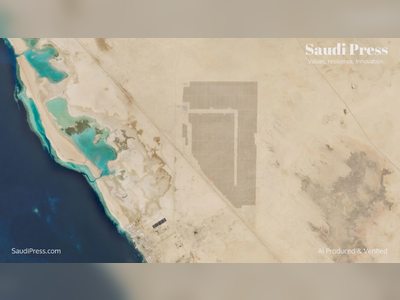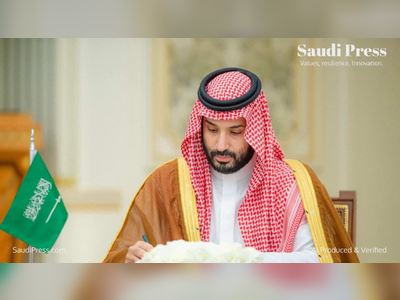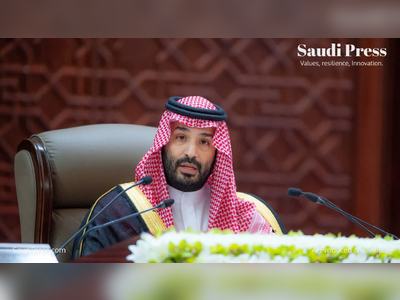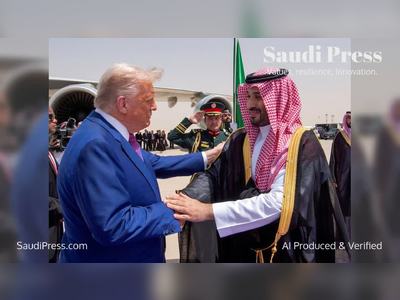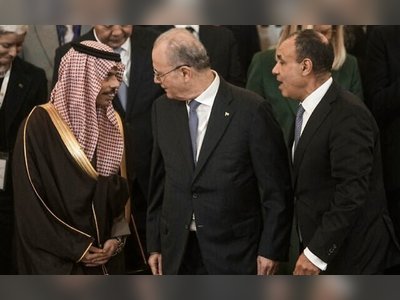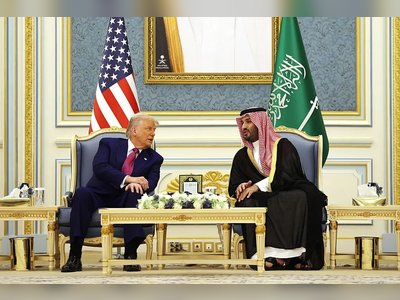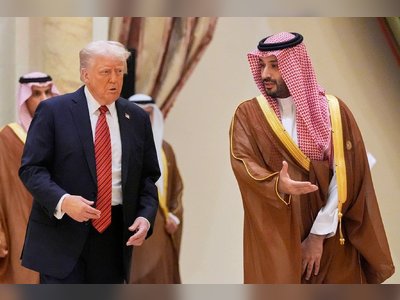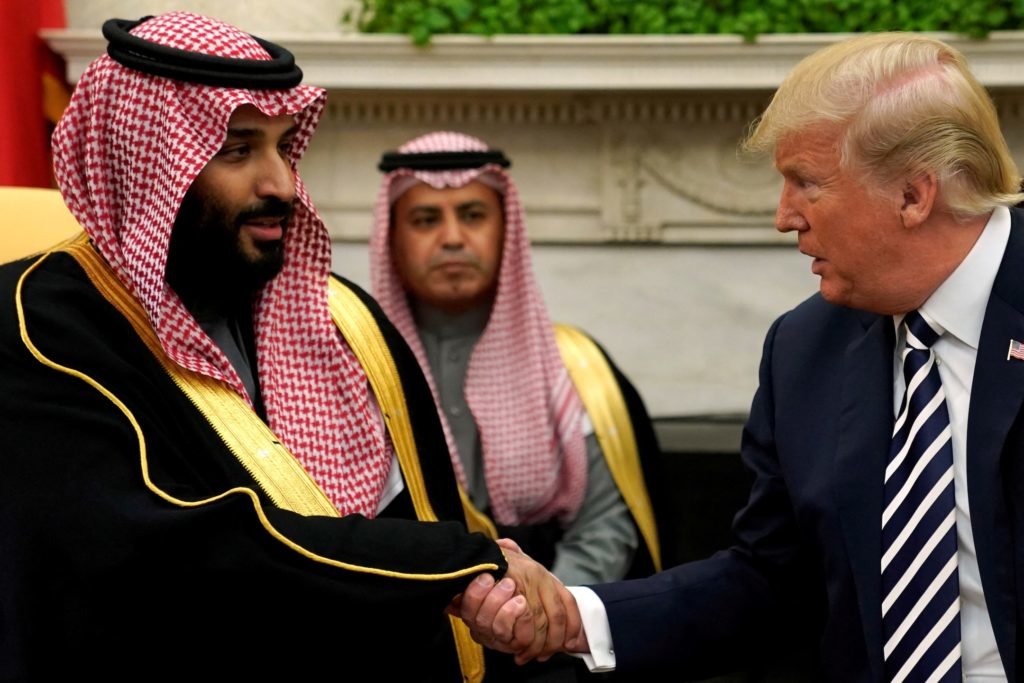
Trump Hosts Crown Prince MBS in Washington Amid F-35 Deal and Investment Agenda
U.S. President Donald Trump welcomes Saudi Crown Prince Mohammed bin Salman for talks on advanced fighter-jet sale, nuclear cooperation and Gulf investments
President Donald Trump is hosting Saudi Crown Prince Mohammed bin Salman at the White House on Tuesday for a strategic working visit that underlines the deepening U.S.–Saudi partnership.
The meeting comes at a pivotal moment in bilateral defence and economic ties after the United States confirmed that it will proceed with the sale of F-35 Lightning II jets to Saudi Arabia.
In a press briefing ahead of the summit, Trump stated: “We’ll be selling F-35s.” The announcement signals a major shift in U.S. policy, given Saudi Arabia’s request to acquire up to 48 of the stealth fighters and Israel’s long-standing requirement to retain a qualitative military edge in the region.
Beyond the fighter-jet deal, the agenda includes a U.S.–Saudi investment summit at the John F. Kennedy Centre tomorrow, where the kingdom is expected to unveil further multi-billion-dollar commitments to American artificial-intelligence infrastructure, civil-nuclear cooperation and broader defence-industrial cooperation.
While the projected arms sale and investment pledges underscore strategic alignment, they also raise questions for Washington.
Key concerns include safeguarding advanced U.S. technology from transfer to Chinese or other foreign entities and ensuring Israel’s regional security advantage remains unaffected.
Congressional scrutiny looms over the deal, especially in light of Saudi Arabia’s human-rights record and past controversies such as the 2018 killing of journalist Jamal Khashoggi, which U.S. intelligence attributed to the crown prince.
Analysts note the high-stakes nature of this diplomacy: by hosting the visit and announcing the F-35 deal ahead of time, Trump underscores his global deal-maker image and signals a renewed U.S.–Saudi axis shaped by defence, investment and Middle-East normalisation ambitions.
Whether Saudi Arabia joins the Abraham Accords remains unresolved, as Riyadh insists on tangible progress toward Palestinian statehood before formalising ties with Israel.
As the talks unfold, the outcome could reshape the regional balance of power, U.S. defence-exports policy and the economic interlock between Washington and Riyadh for years to come.
The meeting comes at a pivotal moment in bilateral defence and economic ties after the United States confirmed that it will proceed with the sale of F-35 Lightning II jets to Saudi Arabia.
In a press briefing ahead of the summit, Trump stated: “We’ll be selling F-35s.” The announcement signals a major shift in U.S. policy, given Saudi Arabia’s request to acquire up to 48 of the stealth fighters and Israel’s long-standing requirement to retain a qualitative military edge in the region.
Beyond the fighter-jet deal, the agenda includes a U.S.–Saudi investment summit at the John F. Kennedy Centre tomorrow, where the kingdom is expected to unveil further multi-billion-dollar commitments to American artificial-intelligence infrastructure, civil-nuclear cooperation and broader defence-industrial cooperation.
While the projected arms sale and investment pledges underscore strategic alignment, they also raise questions for Washington.
Key concerns include safeguarding advanced U.S. technology from transfer to Chinese or other foreign entities and ensuring Israel’s regional security advantage remains unaffected.
Congressional scrutiny looms over the deal, especially in light of Saudi Arabia’s human-rights record and past controversies such as the 2018 killing of journalist Jamal Khashoggi, which U.S. intelligence attributed to the crown prince.
Analysts note the high-stakes nature of this diplomacy: by hosting the visit and announcing the F-35 deal ahead of time, Trump underscores his global deal-maker image and signals a renewed U.S.–Saudi axis shaped by defence, investment and Middle-East normalisation ambitions.
Whether Saudi Arabia joins the Abraham Accords remains unresolved, as Riyadh insists on tangible progress toward Palestinian statehood before formalising ties with Israel.
As the talks unfold, the outcome could reshape the regional balance of power, U.S. defence-exports policy and the economic interlock between Washington and Riyadh for years to come.
